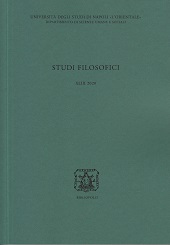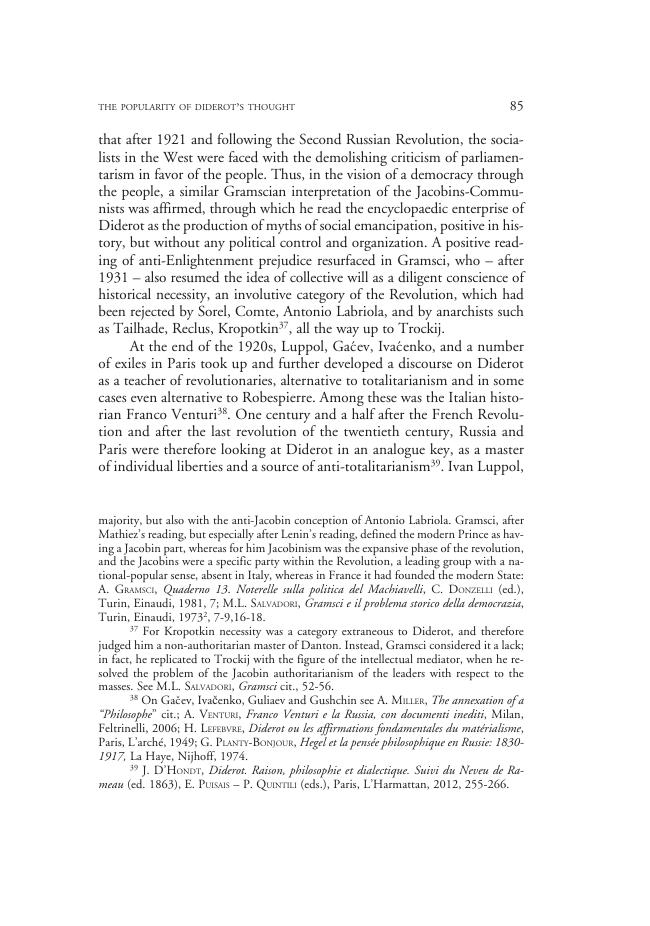The popularity of Diderot's thought between analogue use of history and archetypes of the revolution
P. 75-94
This article examines the debate on the historical readings that restored the hermeneutic dialectic of the relationship between Denis Diderot and the archetypes of the French Revolution. At the same time, it highlights the ideological and political forms of the reception of Diderot's works between the nineteenth and twentieth centuries. In particular, the author examines assessments of Diderot's works by positivists, socialists, Russian anarchists, Marxists, and Marxist-Leninists. The author demonstrates that in two centuries of historical readings the portrait of Diderot has been mainly political. In doing so, she seeks to reveal part of the heritage of Diderot that has been present in historiographical reconstructions of the Enlightenment and of Diderot's own thought over the last centuries until the present day. [Publisher's text]
-
Articles du même numéro (disponibles individuellement)
-
Informations
ISSN: 2038-6613



